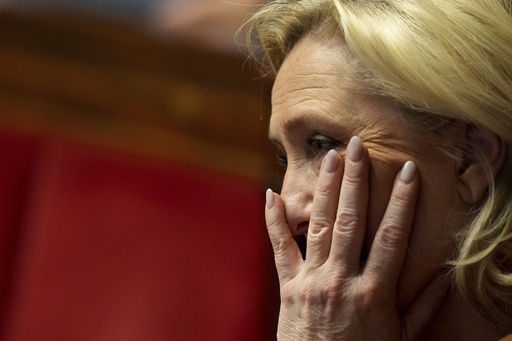
PARIS — Uncertainty in the political landscape of France is resurfacing as Prime Minister Francois Bayrou has issued a warning regarding his intention to utilize special executive powers in the coming week to push through his budget without seeking approval from lawmakers.
This action is likely to provoke a vote of no confidence. The outcome could hinge on whether various political factions unite, which may result in Bayrou’s political demise.
A similar scenario occurred last December when a confidence motion, spurred by budget disagreements, led to the resignation of former Prime Minister Michel Barnier.
Bayrou, in a conversation with La Tribune Dimanche, indicated his intention to invoke Article 49.3 of the French Constitution, a provision that permits the government to enact laws without a parliamentary vote, albeit making it vulnerable to confidence votes.
On Monday, members of the French Parliament are scheduled to discuss the findings from a joint Parliamentary committee regarding the state budget, with a focus on the social security budget later in the week.
“It’s crucial that we proceed directly to the adoption,” Bayrou stated. “A nation like ours cannot afford to operate without a budget. Thus, the government must take accountability.”
This impending conflict arises amidst a fragmented National Assembly, which remains unsettled following June’s snap elections that yielded no definitive majority.
In an attempt to break the deadlock, President Emmanuel Macron enlisted Barnier in September. However, Barnier’s austerity budget proposal, which aimed at cutting 40 billion euros in expenditures and raising taxes by 20 billion euros, only exacerbated the rifts, igniting severe tensions within the lower house and prompting a significant political clash.
To create a sense of stability for his minority government, Bayrou revealed in January his openness to revise the controversial proposal to raise the retirement age from 62 to 64. The government has also adjusted its budgetary objectives to target a reduction of France’s deficit to 5.4% of its gross domestic product for this year, while addressing some concerns raised by opposition members.
The joint committee has opted to maintain a supplementary tax on large corporations and has increased taxation on financial transactions. Additionally, Bayrou reiterated his pledge not to eliminate 4,000 positions within the national education system—an initiative that had previously been discussed.
The far-left party, France Unbowed, has already announced plans to introduce a motion of no confidence, which is anticipated to receive backing from both Communist and Green party legislators. Marine Le Pen, the far-right leader, played a crucial role in the ousting of the prior government; however, her National Rally party has yet to provide any guidance regarding voting.
The decision by the Socialists, who have recently taken a more constructive stance in budget negotiations, could prove critical to Bayrou’s political survival. Despite their opposition to the government, they have expressed a commitment to address budgetary matters in the nation’s best interest.
“We have secured several reversals from the government and acknowledge that commitments made by the prime minister have been upheld,” they indicated in a statement. “However, these measures remain significantly insufficient.”

